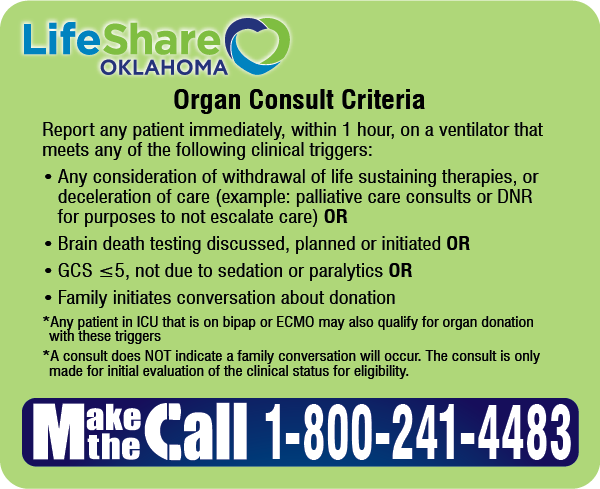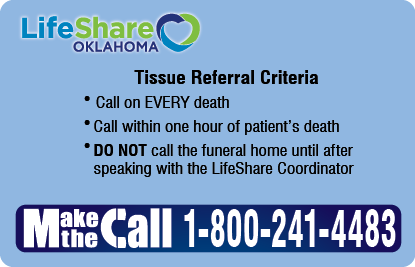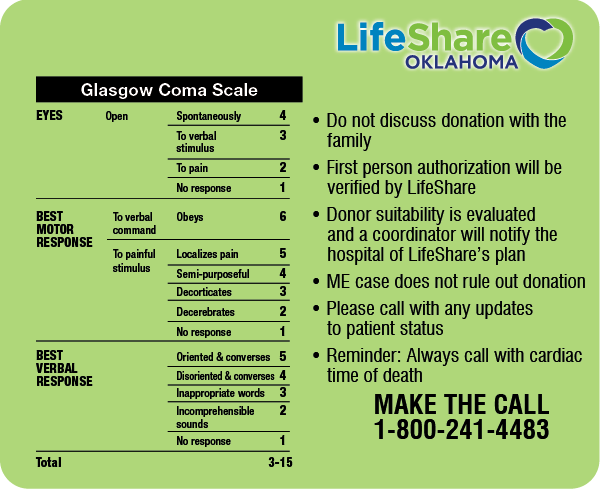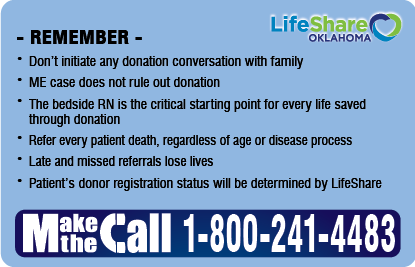Saving lives starts with a timely referral call!
Recognize the clinical triggers and when LifeShare should be notified.
Recognize the clinical triggers and when LifeShare should be notified.
TWO TYPES OF REFERRALS: ORGAN AND TISSUE
|
ORGAN REFERRAL |
TISSUE REFERRAL |
What are the identifying clinical triggers? |
Any patient that is currently intubated, on bipap, or ECMO that meets any of the following: • Any consideration of withdrawal of life sustaining therapies, or deceleration of care (example: palliative care consults OR • DNR for purposes to not escalate care) OR • Brain death testing discussed, planned or initiated OR GCS < 5, not due to sedation or paralytics OR • Family initiates conversation about donation |
Any patient that has died in the hospital and has a cardiac time of death. |
ORGAN REFERRAL |
TISSUE REFERRAL |
|
When do I make the referral? |
Within 60 minutes of one of these triggers being met |
Within 60 minutes of cardiac time of death |
ORGAN REFERRAL |
TISSUE REFERRAL |
|
What does this type of referral evaluate for? |
Heart, Lungs, Liver, Kidneys, Small Bowel and Pancreas |
Corneas, Skin, Musculoskeletal Tissue, Nerves, Heart for Valves, Bone |
ORGAN REFERRAL |
TISSUE REFERRAL |
|
Remember |
If you call your patient in for an organ referral, and LifeShare evaluation determines the patient is not a suitable candidate for organ donation, you still need to call back after cardiac time of death for the tissue referral. |
WHY DO WE MAKE REFERRALS TO LIFESHARE?
All CMS recommendations are followed, and referrals are made in an effort to save lives through the gift of donation. All referrals are evaluated by LifeShare and eligibility is communicated with the hospital staff.
ARE THERE OTHER TIMES WE SHOULD CALL LIFESHARE TO UPDATE?
Although our team will be following up on a regular basis, either in person or by phone, LifeShare should be called if any of the following become true:







